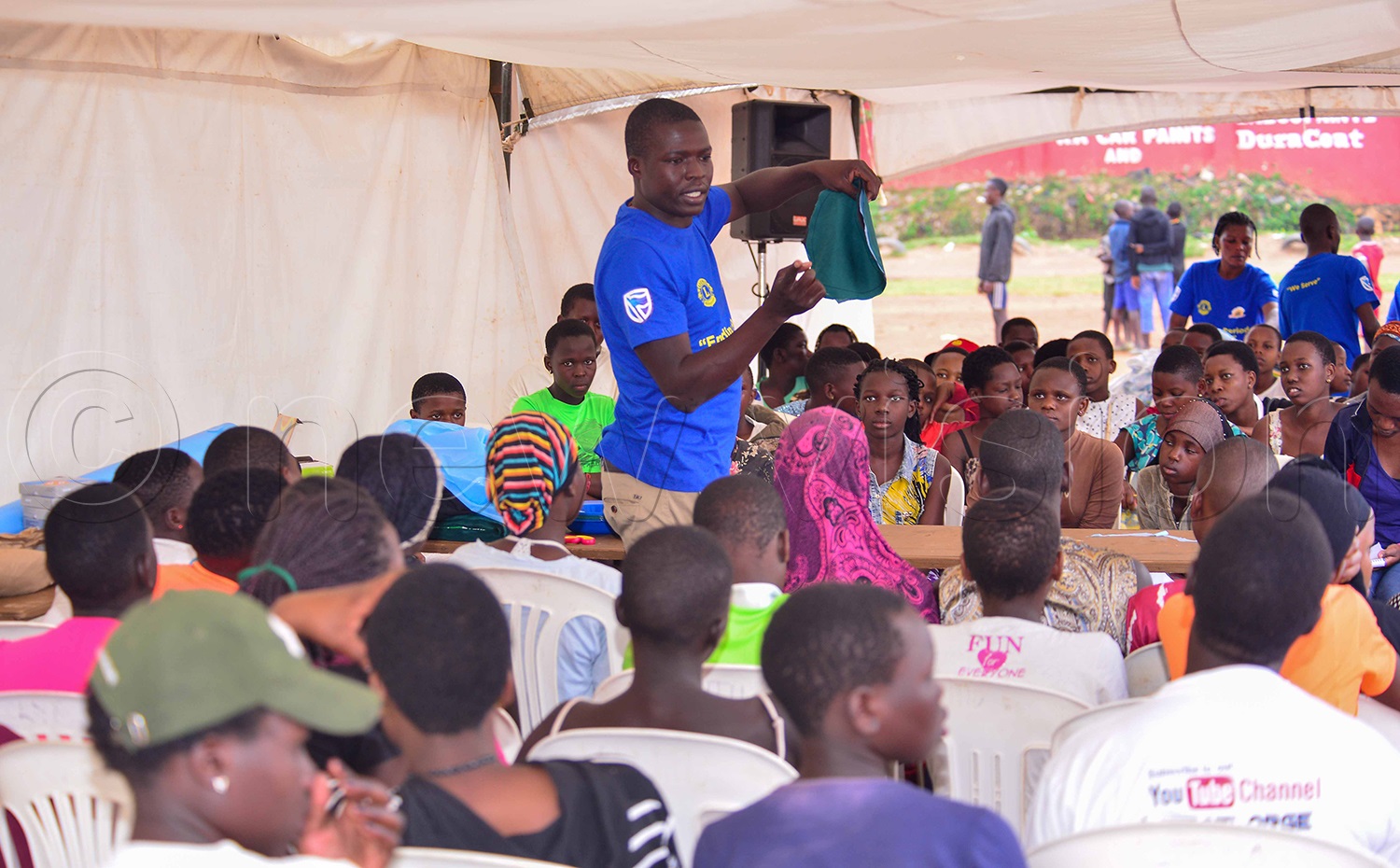Katanga slum residents skilled in sanitary pad making
Dec 14, 2022
The Kampala New Century Lions, Stanbic Bank and Byomire Development Foundation are spearheading the project, which targets adolescent girls dwelling in slums during this holiday season.

Eric Omondi, the executive director Advocates for Sustainable Health and Wealth in Africa (ASHWA) training young girls on how to make reusable pads. (Photo by Ramadhan Abbey Ramadhan)

Ibrahim Ruhweza
Journalist @New Vision
Over 100 slum girls and their parents in the three zones of Kampala's Katanga (Busia, Kimwanyi and Soroti) have been equipped with the skills of making reusable pads as a way of maintaining menstrual hygiene, keeping them in school and avoiding early pregnancies.
The Kampala New Century Lions, Stanbic Bank and Byomire Development Foundation are spearheading the project, which targets adolescent girls dwelling in slums during this holiday season.

Girls in the three zones of Katanga, Busia, Kimwanyi, and Soroti making reusable sanitary pads. (Photo by Ramadhan Abbey)
Kampala New Century Lions president Brenda Namugga said after a successful fundraising campaign in September in which they raised over sh61 million, the actual implementation began in Katanga, Rubaga division followed by the districts of Iganga and Lwengo.
"We are doing the training along with their parents because we need them to learn how to make reusable pads since they can last for a long time," she said.
According to Namugga, the two-day campaign has cost sh21m to skill parents and adolescent girls how to make the pads.

Brenda Namugga, president of Kampala's New Century Lions Club addressing the parents on the importance of skilling young girls. (Photo by Ramadhan Abbey)
She explained that after carrying out an assessment, the club found out that young girls or parents in slum areas are the most affected and that they could hardly afford to buy factory-made pads.
"Today, we have trained 100 young girls and their parents. We believe they will be able to teach others who have not had the opportunity to get the training. Our aim is to see that slum girls are not having issues with menstrual hygiene," she said.
Namugga said the skills girls learnt will enable them to be self-sufficient and stay in school if they experience menstruation.

Girls in the three zones of Katanga, Busia, Kimwanyi, and Soroti making reusable sanitary pads. (Photo by Ramadhan Abbey)
Statistics from the World Health Organisation (WHO) show that 77% of girls who go into menstrual periods miss school for an average of three days, which makes it 12 days in a term, which Namugga said greatly affects their academic performance and their self-confidence, which eventually leads to school dropouts.
Accordingly, at least 65% of Ugandan women cannot address menstrual hygiene, especially those from slums and remote areas.
"It should not surprise us that many women do not have enough information on how to use pads during their menstrual periods," she said.

Members of Lions Club of Kampala New Century participating in the making of reusable sanitary pads. (Photo by Ramadhan Abbey)
Joannes Birabwa, a trainer in menstrual hygiene and a counsellor, said menstrual hygiene remains a big challenge in developing countries, especially Uganda.
Birabwa advised that this can be solved once parents are given support in form of starting their own businesses so as to economically empower themselves and be able to provide for their children’s needs.
"Parents are taught how to make reusable pads, but they still need funds to start their own income-generating activities so that they can provide some of their daughters' needs, or they can be taught soft skills such as making liquid soap," she said.

No Comment